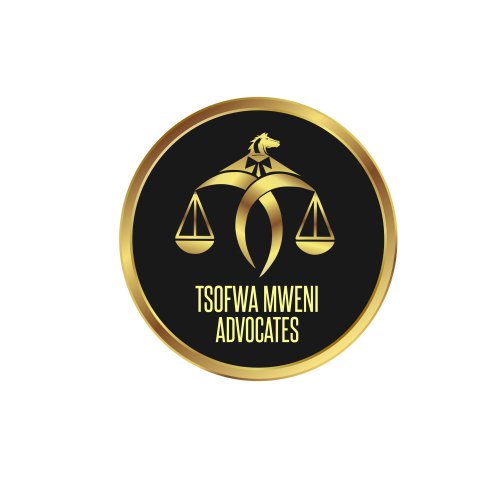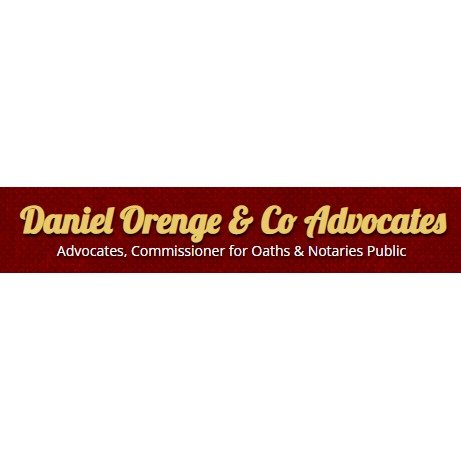About Landlord & Tenant Law in Mombasa, Kenya
Landlord and tenant relations in Mombasa, as in the rest of Kenya, are primarily governed by the Rent Restriction Act and the Landlord and Tenant (Shops, Hotels and Catering Establishments) Act. These laws aim to balance the rights and responsibilities of landlords and tenants, ensuring fair tenancy agreements and providing mechanisms for resolving disputes. The high demand for rental properties in Mombasa, due to its status as a commercial and tourism hub, makes it crucial for landlords and tenants to understand their legal rights and obligations to avoid conflicts.
Why You May Need a Lawyer
There are several common situations where seeking legal assistance may be necessary in landlord and tenant matters:
- Disputes Over Rent: Cases involving disagreement over the amount or payment of rent.
- Eviction Notices: Legal advice is often needed to understand the validity and procedure for eviction notices.
- Negotiating Lease Terms: A lawyer can help negotiate and draft a lease that protects your interests.
- Property Damage and Maintenance Issues: Disputes over responsibilities for repairs can often require legal intervention.
- Unlawful Evictions: Protection against illegal evictions which do not follow the due legal process.
- Security Deposits: Issues regarding the handling and return of security deposits.
Local Laws Overview
The key aspects of local laws relevant to landlord and tenant relationships in Mombasa include:
- Rent Restriction Act: This applies to residential premises with rent not exceeding KES 2,500. It protects tenants from excessive rent and arbitrary eviction.
- Landlord and Tenant Act (Shops, Hotels and Catering Establishments): Regulates commercial leases, ensuring fair treatment of tenants operating businesses.
- Eviction Process: Must follow a court process if not for reasons like failure to pay rent. Illegal evictions are highly discouraged and penalized.
- Lease Agreements: Should be written and clearly outline terms of tenancy, including rent amount, duration, and maintenance obligations.
Frequently Asked Questions
What are the necessary steps for legally evicting a tenant?
To legally evict a tenant, a landlord must issue a notice to vacate and, if the tenant does not comply, seek a court order. The process must respect the tenant's rights to avoid unlawful eviction claims.
Can a landlord increase the rent arbitrarily in Mombasa?
No, rent increases must follow the terms outlined in the lease agreement or, where applicable, conform to guidelines set by rent control statutes, ensuring fairness and transparency.
Is a lease agreement mandatory for renting a property?
While not legally mandatory, having a written lease agreement is highly recommended as it clearly defines the rights and responsibilities of both parties, reducing the potential for disputes.
What should I do if I face unlawful eviction?
If facing unlawful eviction, tenants should seek immediate legal assistance to understand rights and options, including seeking redress from the courts.
Who is responsible for repairs in a rental property?
Typically, landlords are responsible for structural repairs, while tenants handle minor maintenance unless otherwise specified in the lease agreement.
How can I protect my security deposit?
Document the condition of the property at move-in and move-out, and understand your lease terms regarding deposits. This documentation can be crucial if disputes arise.
Can I sublet my apartment?
Subletting typically requires consent from your landlord, often outlined within the lease agreement's terms.
How much notice must be given to end a tenancy?
The notice period often depends on the lease agreement's specifics but generally ranges from one to three months.
What should you do if a landlord fails to make necessary repairs?
Tenants should formally request repairs in writing and document their requests. If unaddressed, they may seek legal advice to explore options further.
Are oral lease agreements enforceable in Mombasa?
Oral agreements can be legally binding but are harder to enforce without written evidence. It's advisable to have a documented agreement for clarity and enforceability.
Additional Resources
Several resources can provide assistance and information related to landlord and tenant issues:
- Ministry of Lands and Physical Planning: Provides guidelines on land use and housing policies.
- Housing Tribunal: Offers dispute resolution services between landlords and tenants.
- Kenya Law Reports: An excellent resource for accessing legal texts and recent rulings relevant to tenancy laws.
- Mombasa County Government: Can provide contacts and resources for local housing regulations and tenant advocacy groups.
Next Steps
If you require legal assistance regarding a landlord or tenant issue in Mombasa, consider the following steps:
- Identify the Issue: Clearly define the problem you're facing. Gather all relevant documents such as lease agreements, correspondence, and payment records.
- Consult a Lawyer: Seek an experienced lawyer specializing in landlord-tenant law. They can provide specific advice and potential legal pathways.
- Engage in Mediation: In some cases, mediation can be a cost-effective and amicable solution for disputes.
- Prepare for Legal Action: If necessary, your lawyer can help you prepare and file a case with the relevant tribunal or court.
Lawzana helps you find the best lawyers and law firms in Mombasa through a curated and pre-screened list of qualified legal professionals. Our platform offers rankings and detailed profiles of attorneys and law firms, allowing you to compare based on practice areas, including Landlord & Tenant, experience, and client feedback.
Each profile includes a description of the firm's areas of practice, client reviews, team members and partners, year of establishment, spoken languages, office locations, contact information, social media presence, and any published articles or resources. Most firms on our platform speak English and are experienced in both local and international legal matters.
Get a quote from top-rated law firms in Mombasa, Kenya — quickly, securely, and without unnecessary hassle.
Disclaimer:
The information provided on this page is for general informational purposes only and does not constitute legal advice. While we strive to ensure the accuracy and relevance of the content, legal information may change over time, and interpretations of the law can vary. You should always consult with a qualified legal professional for advice specific to your situation.
We disclaim all liability for actions taken or not taken based on the content of this page. If you believe any information is incorrect or outdated, please contact us, and we will review and update it where appropriate.

















